What Are the Best Foods to Eat At Night?
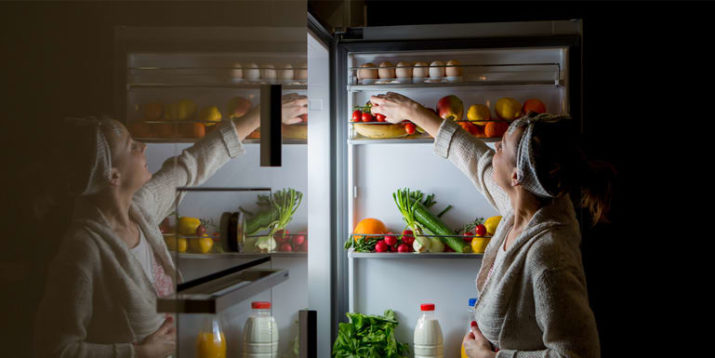
Late-night snacking has long been thought of as a fast track to weight gain. But snacking at night doesn’t have to derail your weight loss goals, as long as you snack smart.
Research suggests that a nutrient-dense nighttime snack — ideally around 150 calories — may have potential benefits to overall health in certain individuals.
(However, additional research is needed to shed light on the specifics — like exactly which populations it may benefit, and what role exercise plays in the equation.)
The big question for us midnight nibblers is: What’s the best food to eat before bed? Here are some of the smartest options for late-night snacking.
1. Apple with Peanut Butter
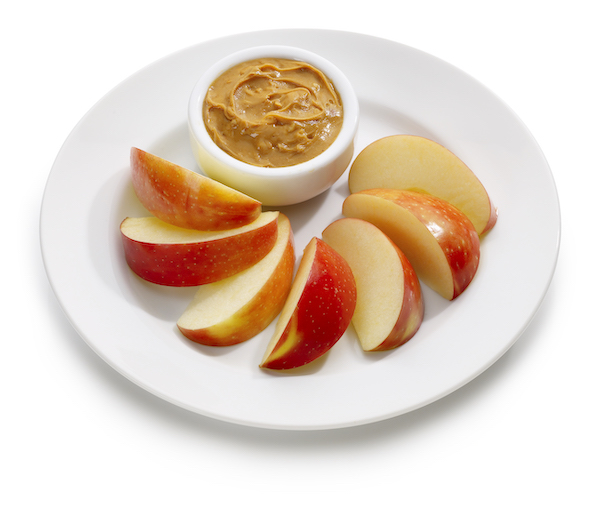
Apples provide fiber and vitamin C, and peanut butter supplies healthy fats, fiber, and protein.
“This is my go-to,” says Hillary Cecere, MS, RDN, a registered dietitian for Eat Clean Bro. “It always holds me over until the morning and is super satisfying.”
2. Greek Yogurt with Berries and Granola
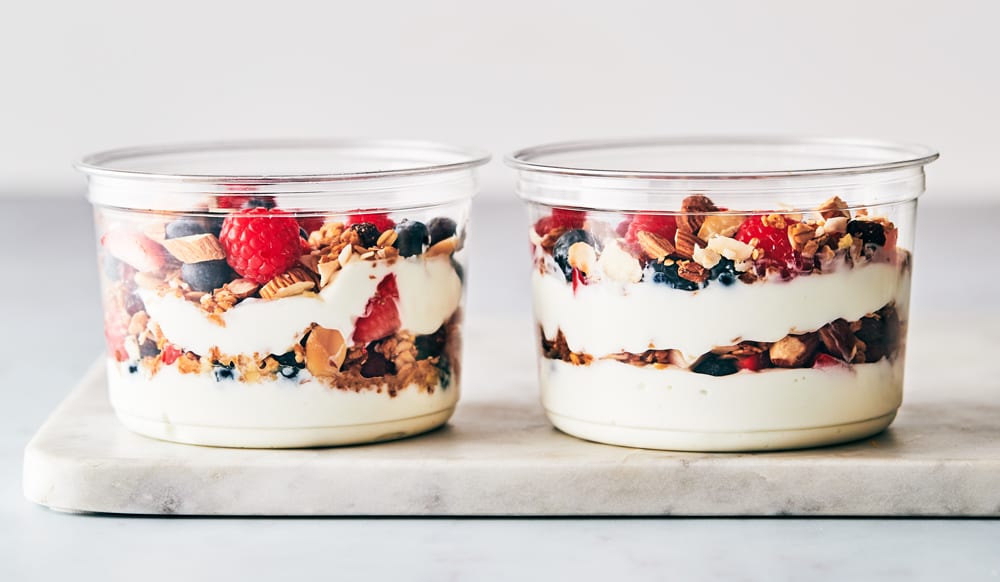
Greek yogurt contains protein, and the berries provide antioxidant-like compounds along with some satisfying sweetness.
Granola contains fiber and also adds a bit of crunch and texture to the smooth and creamy yogurt.
(Just keep an eye on the sugar content, as some varieties of granola can be calorie-dense and chock full of sugar.)
3. Foods with Magnesium
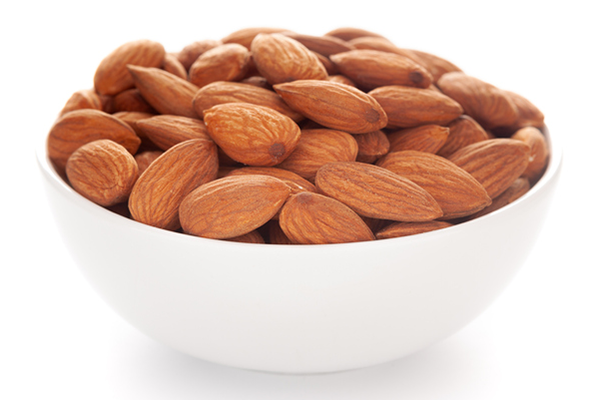
Magnesium is needed for 300 biochemical reactions in the human body, and research suggests this micronutrient may have an association with sleep quality (although further research is warranted to better understand this mechanism).
Consider adding some foods with magnesium — like pumpkin seeds, spinach, and almonds — to your late-night snack.
4. Crunchy Veggies with Hummus
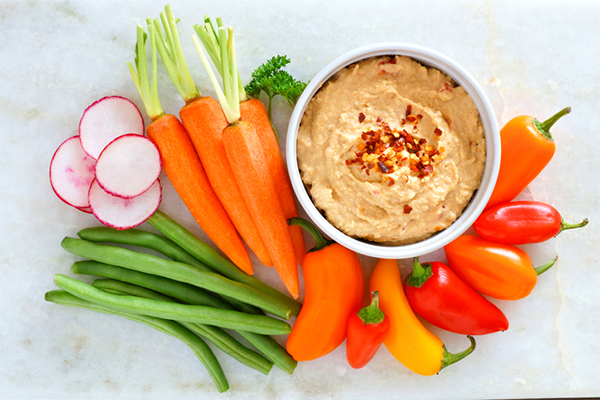
A late-night snack is the perfect way to add extra veggies to your diet.
Baby carrots, celery sticks, and bell peppers are nutrient-dense and hydrating — and pairing them with hummus adds healthy fats, fiber, and protein, says Cecere.
5. Peach with Cottage Cheese
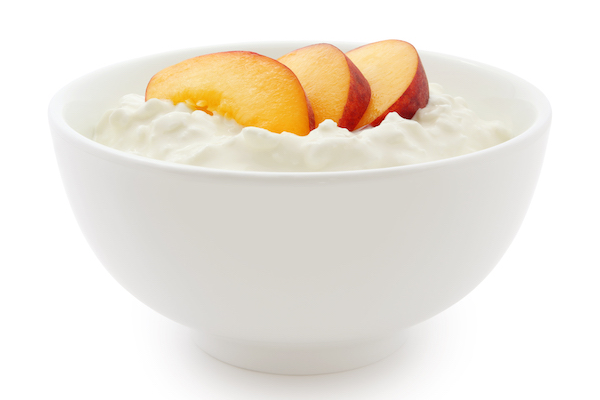
The sweet and creamy combo will make you feel like you’re noshing on a decadent midnight snack.
Bonus points: You’ll get fiber from the peach and casein protein from the cottage cheese.
6. Edamame with Sea Salt
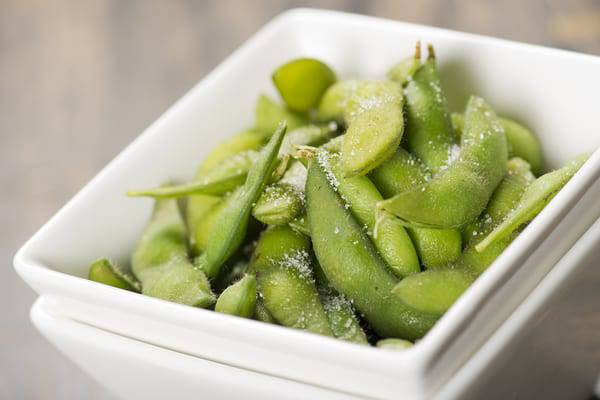
“I love edamame because it’s a great source of plant protein,” Cecere says.
One cup of edamame has 18 grams of protein. Choose unshelled edamame — the process of shelling them can help slow down your consumption.
7. Pear with Cheese
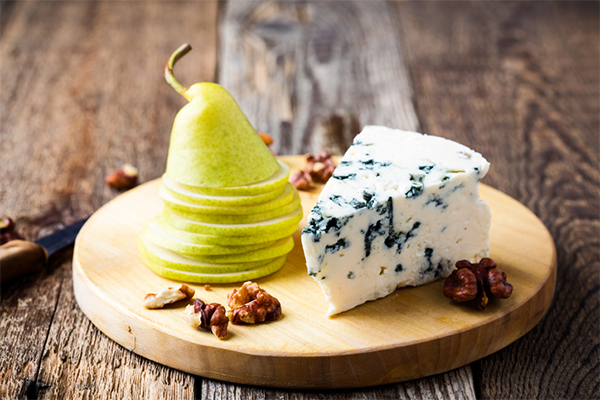
When you’re looking for the best foods to eat before bed, look for ones with at least 2 grams of fiber per serving, Cecere says.
One medium-sized pear provides 5.5 grams of fiber along with other healthy vitamins and minerals. The cheese adds protein and calcium, and it’s a great flavor counterpart to fruit.
(Keep your eye on your cheese portions, however, as the calories and saturated fat can add up quickly.)
8. Popcorn with Sea Salt
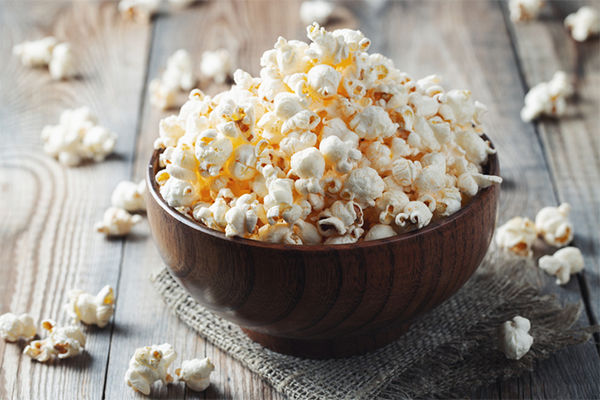
“Popcorn is a whole grain, and it’s relatively low in calories for the portion size, especially if it’s air-popped,” Cecere says.
Air-popped popcorn has about 1 gram of fiber per cup and can satisfy your cravings for a salty snack.
What Not to Eat Before Bed
What are the best foods to eat before bed? Not these! When you’re craving a midnight snack, steer clear of the following.
1. High-calorie cravings
It’s easy to overeat high-calorie foods, especially when you’re tired. “Try to avoid snacks that are impossible to stop eating like potato chips, cookies, and candy,” Cecere says.
2. Junk food
“These foods offer few nutritional benefits,” Cecere says. “Think of snacks as an opportunity to add nutrients.”
3. Spicy, fried, or acidic foods
When these foods are consumed too close to bedtime, certain individuals may become more susceptible to heartburn, reflux, and other digestive issues, says Jim White, RD, ACSM health fitness specialist and owner of Jim White Fitness & Nutrition Studios.
4. Meal-sized portions
The research mentioned above was based on snacks with fewer than 150 calories, so aim to stay around that number.
5. High sodium snacks
According to the American Heart Association, over 70 percent of the sodium we eat comes from processed, prepackaged, and restaurant foods.
Research suggests higher sodium intake may be linked to lower sleep quality, although this connection has not been firmly established.
Regardless, avoiding high sodium snacks before bed is a smart strategy in general, as they’re usually highly processed and low in quality nutrients.
6. Alcohol
This may seem counterintuitive, because an alcoholic drink can be relaxing and may even make you feel sleepy.
But over the course of the night, research suggests alcohol may actually disrupt your sleep — and it certainly doesn’t provide you with a pre-bedtime nutritional boost.
